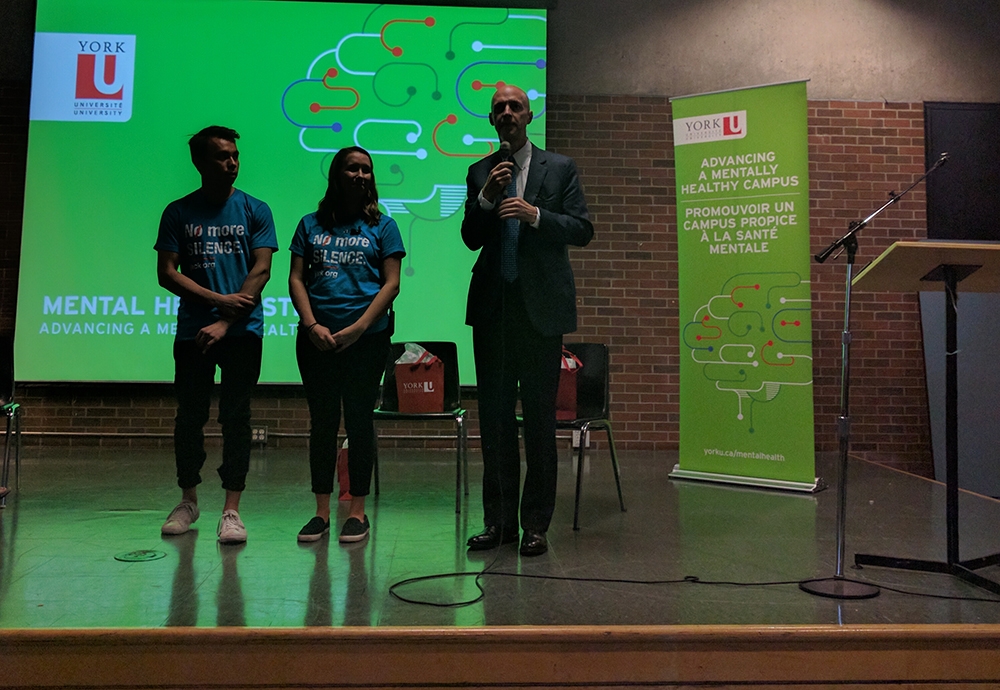Alex Kvaskov and Kanchi Uttamchandani | News Team
Featured image: New mental health strategy promises improved services, but provides little detail on how these goals will be attained. | Alex Kvaskov
York has announced a new mental health strategy for the university in a town hall-style meeting Tuesday afternoon. To a large extent, the strategy emphasizes community engagement by involving every York student, staff and faculty member in promoting mental health on campus.
In that vein, priorities include leadership, planning and promotion, campus engagement and service delivery.
“I know sitting around the table and talking with other provost and vice-president academics that York University is very much out in the front in being proactive in taking this mental health strategy and we have other universities who are looking to us to see what we are doing at York,” says Rhonda Lenton, vice-president academic and provost.
The strategy’s objectives include embedding mental health in classes, improving services, providing support before help is needed and helping the community find the help they need. It reflects York’s stated commitment to three pillars, including health and wellness promotion, facilitation of care and support, collaboration and discussion.
York’s principles with respect to the strategy include delivering a long-term approach to managing health challenges, outlining initiatives aimed at improving health outcomes and advocating for accessible services, among others.
In addition to servicing students, the strategy aims to prioritize faculty and staff members as well.
“When we speak about mental health, we often think of how to support students and their families to be successful in universities, not to forget that York has over 7,000 faculty members and we have mental health challenges and needs for ourselves and students,” says Jennine Rawana, professor in the Faculty of Health and master of Calumet College.
Some of the challenges faculty members experience include the competitive research environment faculty face, funding issues and adopting non-traditional methods of teaching, according to Rawana.
Concerns raised during a Q&A session after the town hall included questions about the implementation of the strategy, opportunities for students to gain access to the training workshops, inclusivity of racialized and Indigenous community members, whether the strategy will address wait times for getting a counsellor’s appointment and if it would simplify the process of academic accommodation.
Moreover, York wants to increase its outreach by providing 80 per cent of resources to 80 per cent of community members, up from 20 per cent. The town hall also featured campus mental health advocacy groups, including Reach Out, Jack.org and Active Minds.
While Jack.org speakers emphasized that youth must be front and centre to campus mental health discussions, York’s strategy acknowledges that all community members have a role to play in changing the conversation about mental health.
According to York, the strategy is supposed to treat mental health as an equity issue.
Previously, York conducted 50 community consultations in developing the strategy. Going forward, the university intends to re-evaluate progress every three years.


